Which are the best Golang interview questions in 2024?
Golang has been gaining traction since its debut in 2009, mostly due to its simplicity and speed. Thanks to the use of what it calls goroutines, it supports concurrency well. Golang has also been used in distributed network services, cloud computing development, and real-time services such as online news outlets and media platforms.
Given that, it is no wonder why big tech companies like Uber, Twitch, Dailymotion, Dropbox, and others are hiring Golang specialists. And since you’re here, you probably see value in the technology as well and are looking to hire some experts.
So, if you’re looking for some of the best Golang interview questions to ask your potential candidates, you’ve come to the right place!
Top Golang Interview Questions
Let’s categorize the interview questions into three levels to help you select the most appropriate ones based on your Golang candidate’s experience. We’ll provide questions for beginners, intermediate, and expert levels, ensuring you can effectively assess their skills and expertise.
Golang Beginner Interview Questions
1. Can you declare multiple types of variables in a single declaration in Go?
Yes. This can be done through the use of comma-separated values, like so:
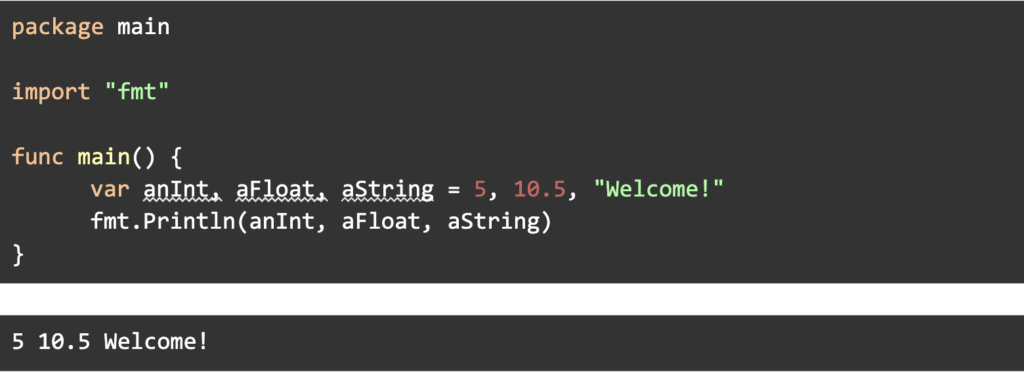
2. Can you return multiple values from a function in Go?
Yes. Much like the previous question. To sum up, You can accomplish it through the use of comma-separated values:
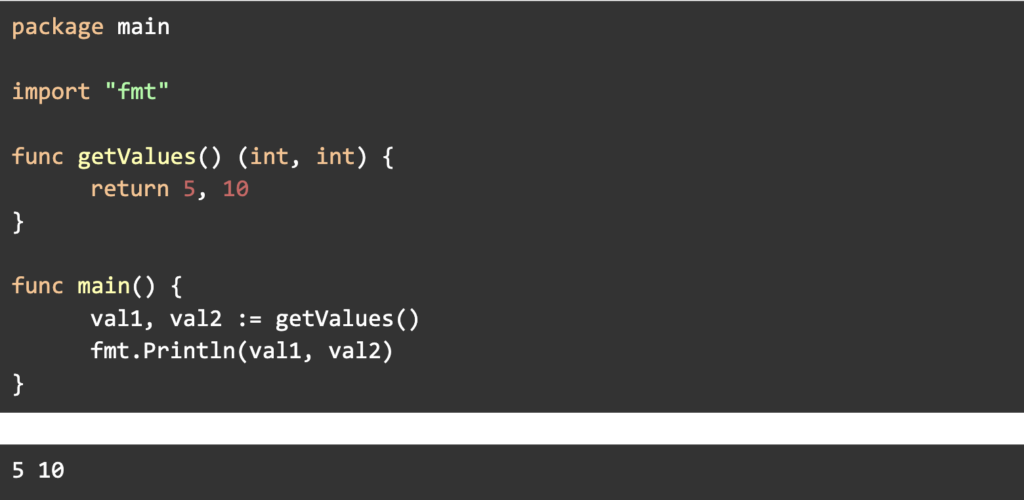
3. What are the two types of string literals in Go?
So, strings in Go come in two varieties:
- Raw string literals: These string literals do not support escape characters, and will treat them as regular characters.
- Interpreted string literals: These string literals support escape characters, and will respect them when printing.
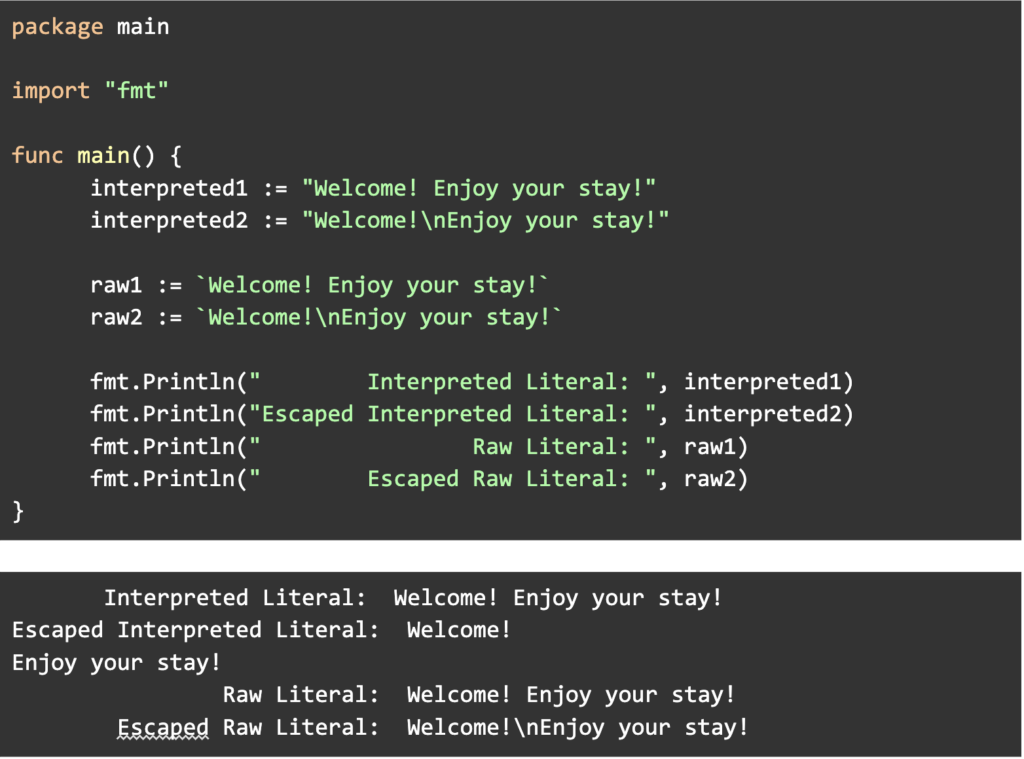
4. What are Goroutines?
Goroutines are essentially threaded functions that run in parallel with other routines, allowing Go to achieve concurrency. So, the main function is considered to be the main Goroutine and the starting point for all others.
Let’s look at an example:
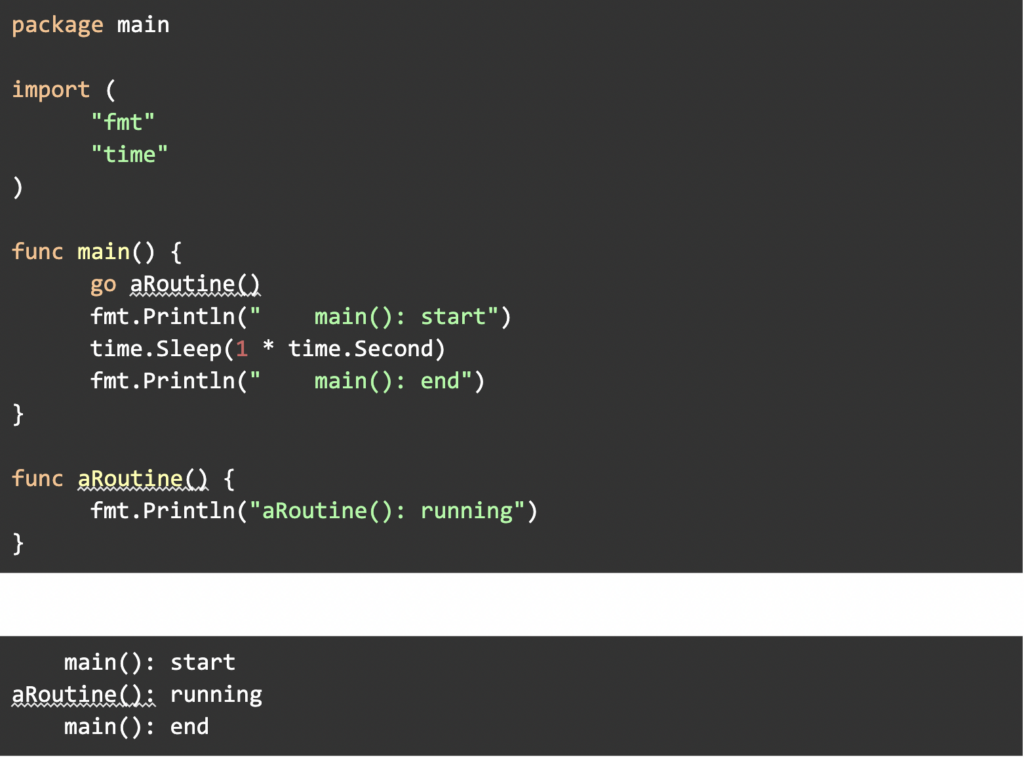
If you removed or commented the sleep line, the routine may not even finish executing by the time the main function ends.

To conclude, this happens because when the main function ends. And the main Goroutine also ends, ending with it all other Goroutines.
5. What is a pointer in Go and how are they used?
Pointers are variables that hold the address of other variables.
So, there are two operators you can use with a pointer:
- *: This is the dereferencing operator. It is used to access the value stored in the address that the pointer holds.
- &: This is the address operator. It is used on a variable to get its address in memory.
Let’s look at an example:
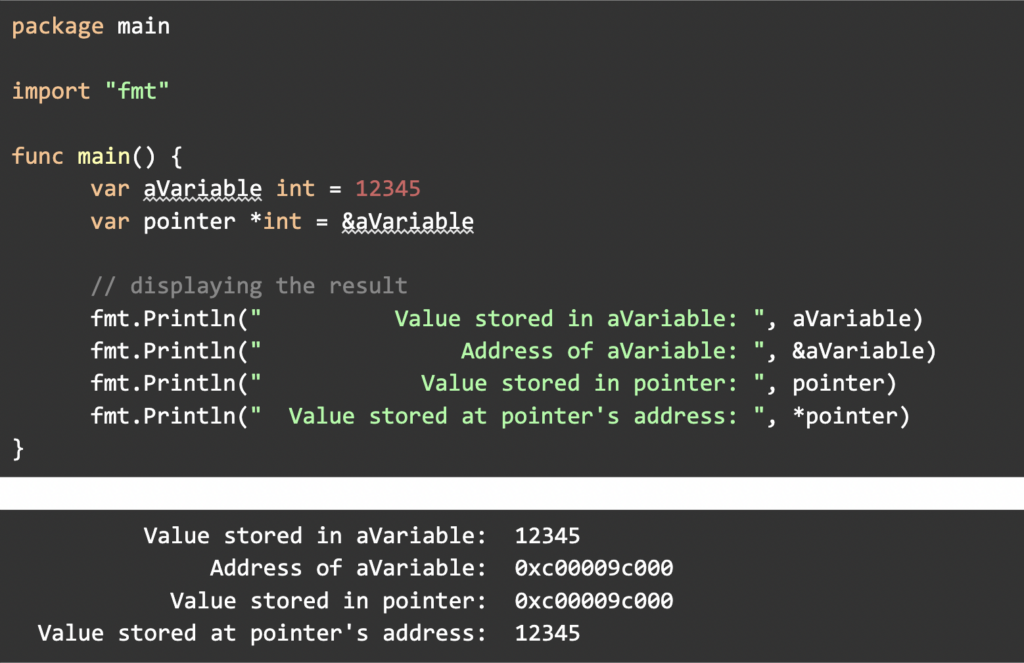
Golang Intermediate Questions
1. How can you quickly swap two values in Go?
In short, this is easily done using comma-separated values once again:

Let’s look at an example:
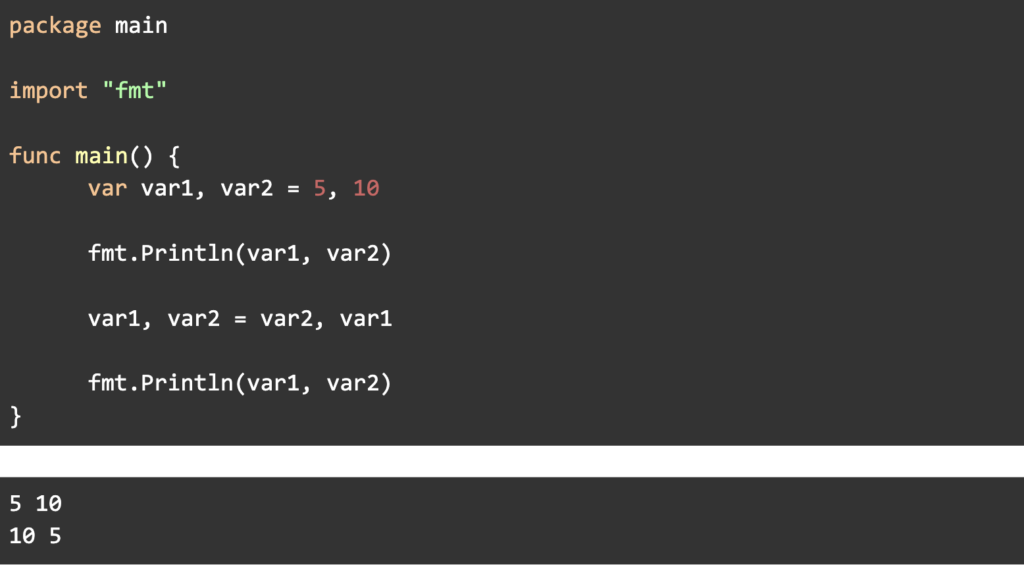
2. Can Go have optional parameters?
No. The only way you can emulate that behavior is through the use of complex objects such as maps or arrays, or through variadic functions.
Variadic functions define a parameter at the end that accepts any number of variables from that type:

Let’s look at a simple example:
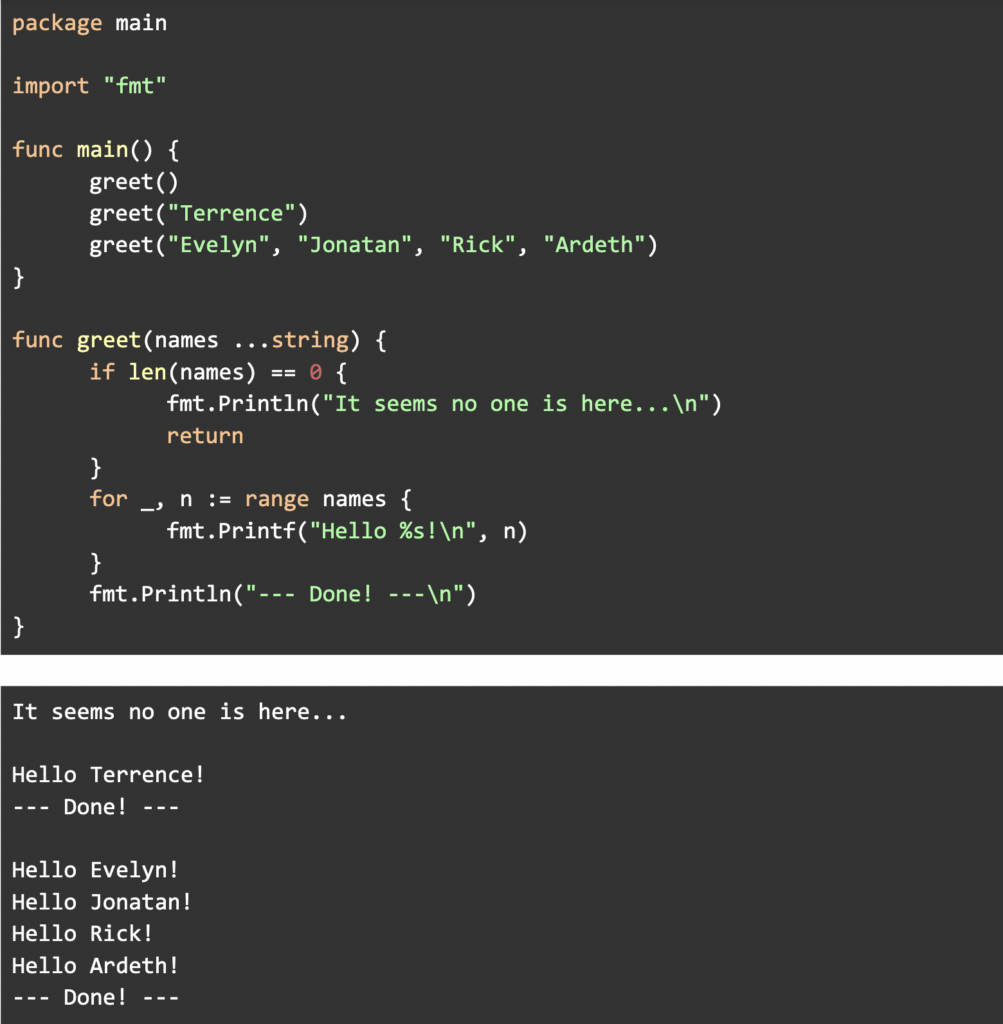
3. Is there a foreach construct in Go?
No, but a for loop can be adapted to serve its purpose with the help of the range keyword.

Let’s look at a simple example:
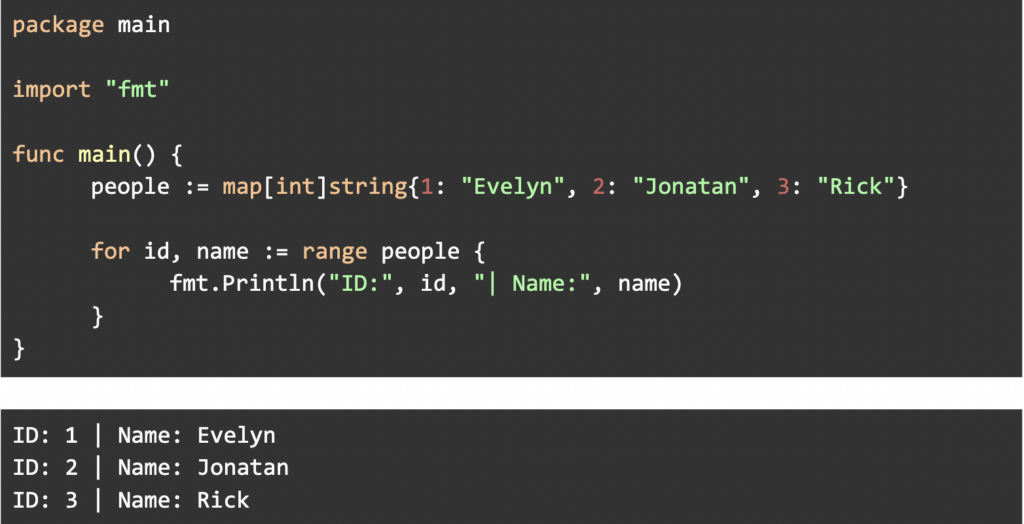
4. How do you check if a map contains a key?
There is a simple way to do this. When accessing a map entry by key, you’ll get a boolean that tells you if the key was actually found:

You can then use this value to check if the key was present or not. Let’s use this in a example:
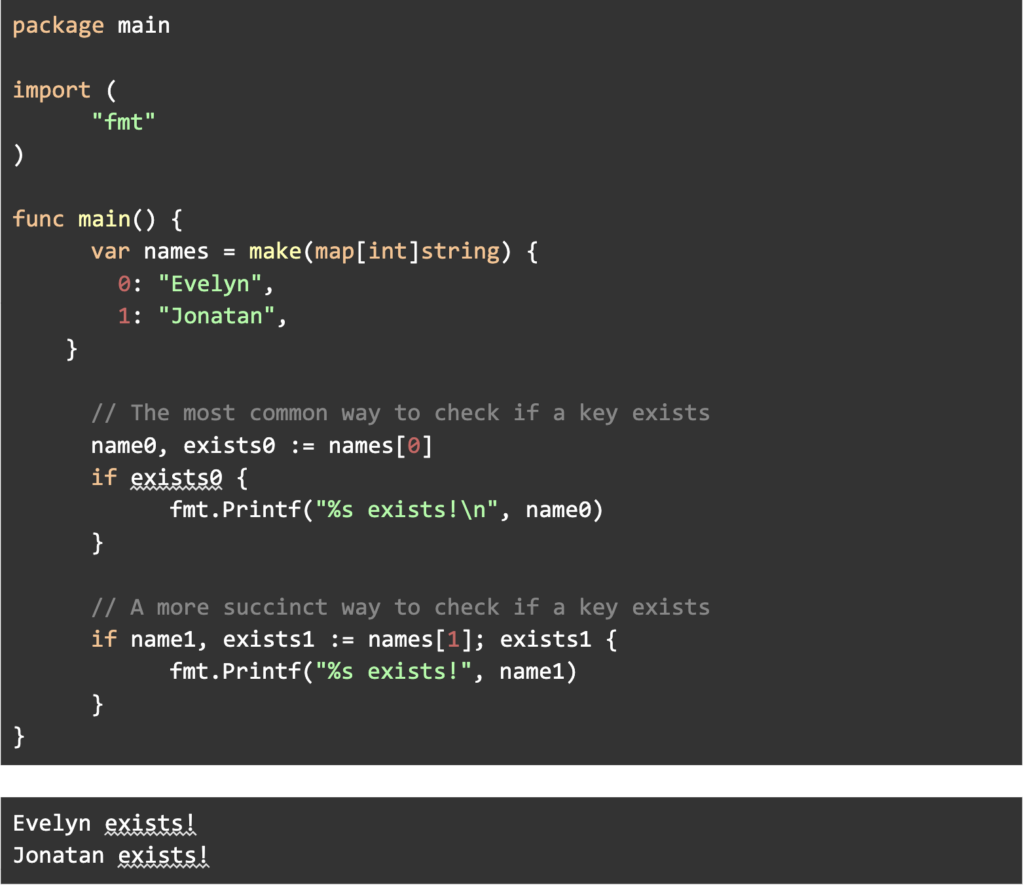
5. What is the difference between = and := in Go?
:= is used to declare and assign variables, while = is used only for variable assignment.
These are both equivalent:

When a variable is already declared, you can no longer use the := operator to modify it, and must always use the = operator.
Golang Interview Questions for Experts
Here are some of the top Golang interview questions for experienced developers:
1. How do you find the type of an object in Go?
Finding the type of variables can be accomplished with the use of Go’s reflection package:
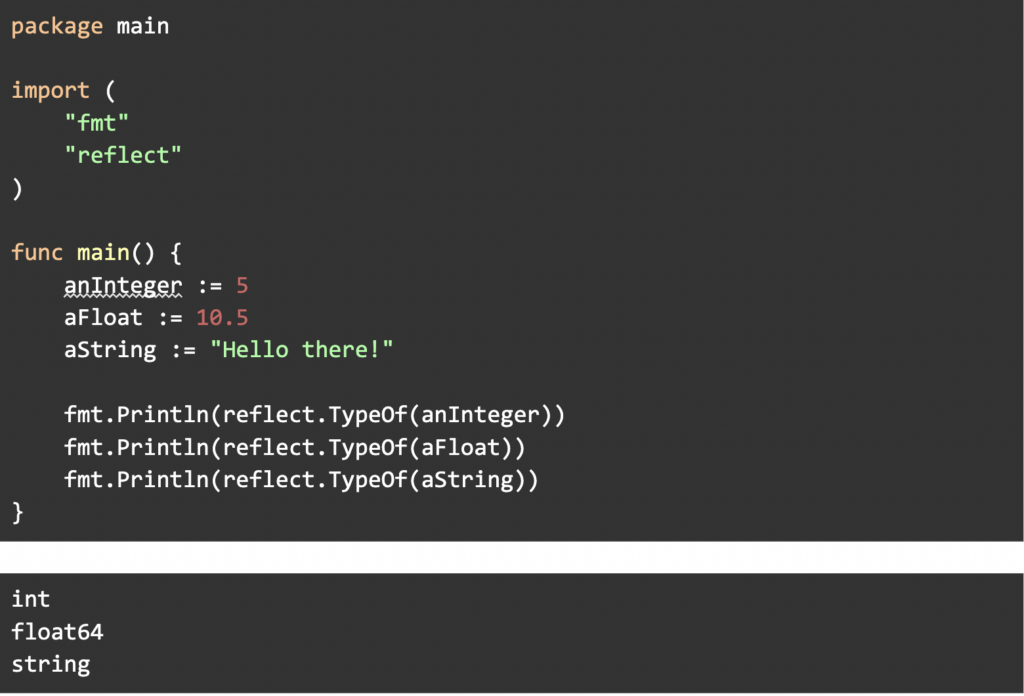
2. What is the difference between $GOROOT and $GOPATH variables?
$GOROOT defines where your Go SKD is located. Unless you are using different versions of Go, you won’t need to change it.
$GOPATH defines the root of your workspace. By default, it is set as a folder named go located in the user’s home directory (%USERPROFILE%/go for Windows, ~/go for Linux and MacOS). It usually contains the following folders:
- src/: for source code.
- pkg/: for compiled package code.
- bin/: for the compiled project executable built by Go.
3. When is the init() function run in Go?
init() is a special function in Go that is run after the package is imported and all variable declarations have been evaluated. You can have multiple init() functions and they will run in the same order they are defined in the file. main() is only run after all init() functions are run:
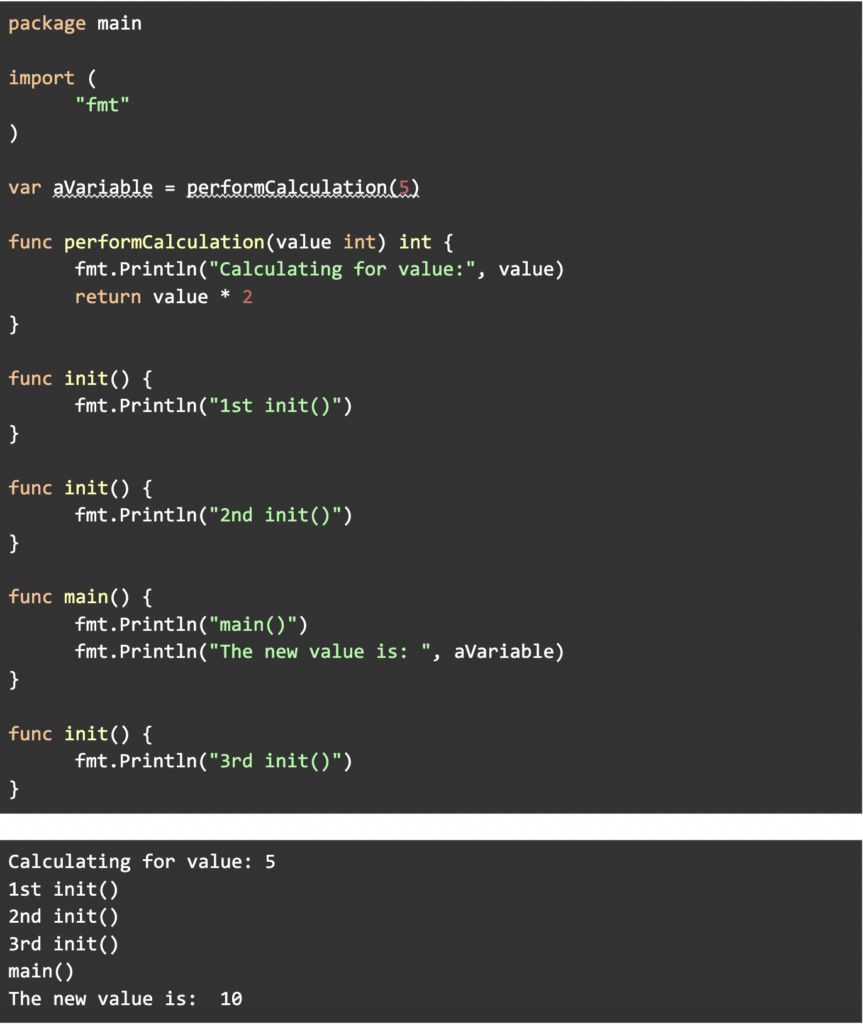
Two things are important to note here:
- Variable initializations that depend on functions (in this case aVariable uses performCalculation() to initialize itself) will run those functions before any init() is run.
- The third init() is run after main(), even though it is defined afterwards.
4. How does Go compile so quickly?
Go compiles more quickly than other languages mainly due to its advanced dependency analysis that avoids the overhead of C-style include files and libraries.
5. What are the uses for tags in Go?
A tag is a way to add metadata for a field that can then be extracted and used using reflection. A tag is a list of key-value pairs that can be used to add information about a field to help define how to use that field in specific scenarios.
Let’s look at a simple example:
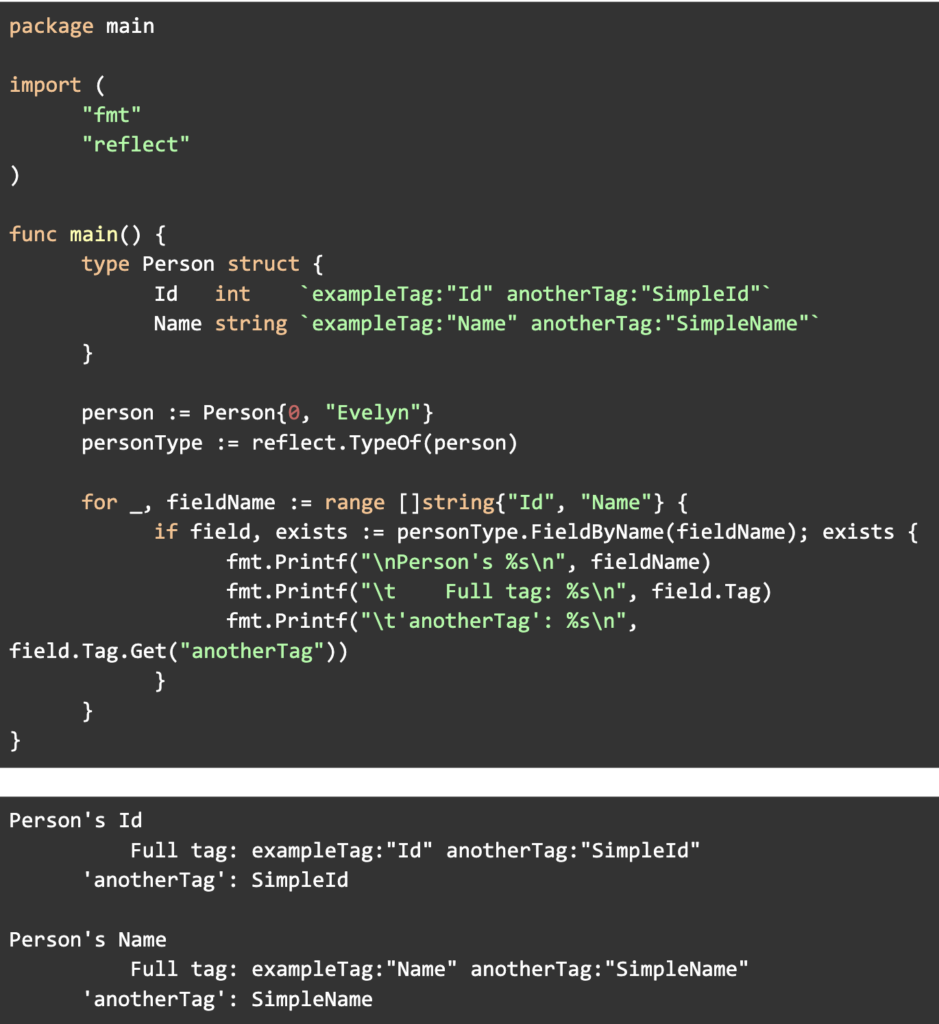
Golang’s Online Compiler
If you’re looking for an interactive tool to run these examples or even to incorporate in your tests, you can use Golang’s Playground. It is an extremely useful online compiler to test out how the language works or even share small code snippets. You can use it to develop Go code and then use it for a test, if you so wish!
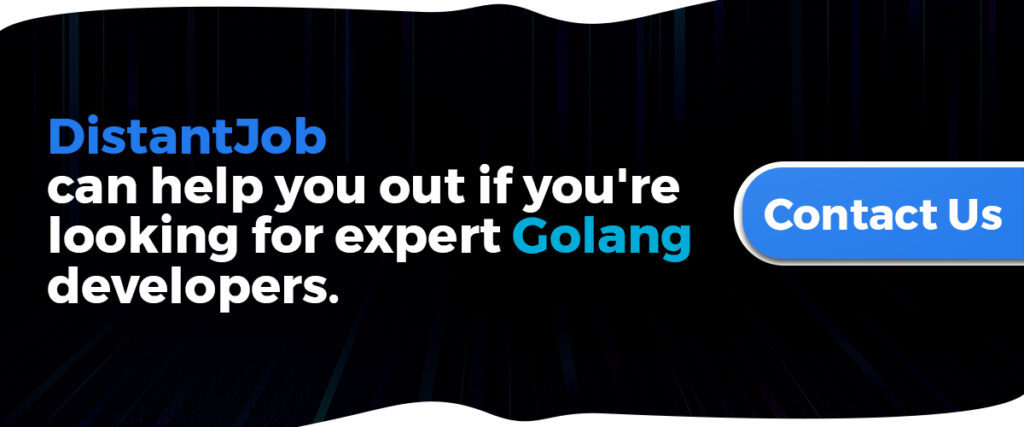
Wrapping Up On Golang Interview Questions
Using these interview questions on Golang, you can quickly assess your candidates’ knowledge level with a well-rounded test. Don’t forget to then run a coding challenge with pertinent problems to your business operations, and you’ll find the best candidates for your Golang position in no time.
DistantJob can help you out if you’re looking for expert Golang developers. We have a wide array of people ready to fulfill your needs, and we guarantee to quickly find you a developer with the right qualifications that fit your company culture. Don’t waste your time, and let us take care of hiring your next developers. Contact us today!





